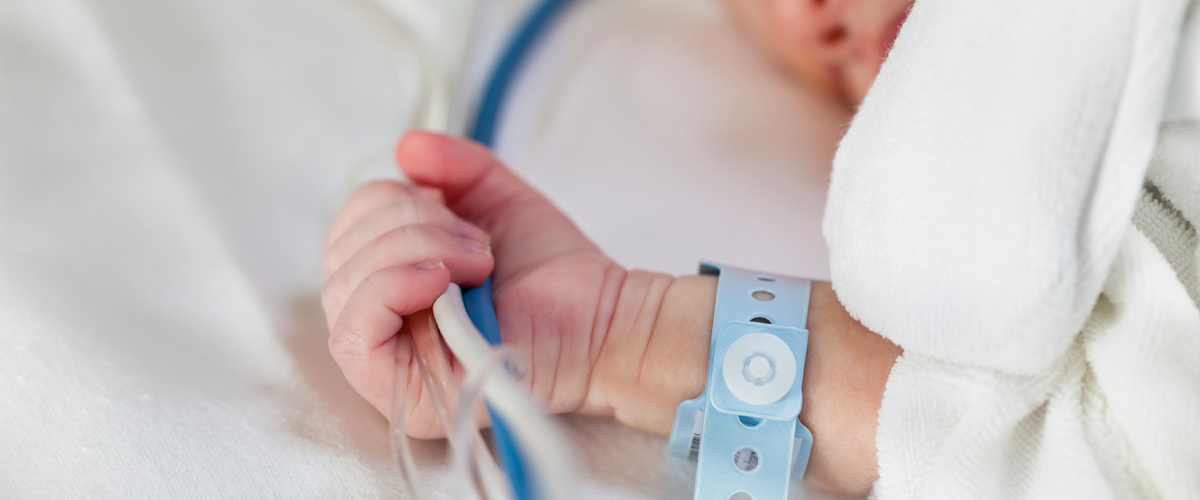Post Traumatic Stress Disorder (“PTSD”) can be a struggle for many parents with newborn’s in a Neonatal Intensive Care Unit (“NICU”). Studies have shown that the emotional and mental pressures of having a child in the NICU can lead either or both parents to suffer from symptoms of PTSD.
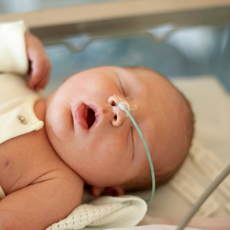 In some cases it happens simultaneously and in others one parent can be diagnosed earlier on, while the other has a delayed onset with symptoms of the disorder showing up months after the birth of their child.
In some cases it happens simultaneously and in others one parent can be diagnosed earlier on, while the other has a delayed onset with symptoms of the disorder showing up months after the birth of their child.
Whatever the case may be, a close examination of what it’s like to have a child in the NICU can easily lend itself to an outcome where the parents suffer an immense amount of emotional pain. Imagine your child is born and then suddenly whisked away to a nearby children’s hospital. As a parent, you may have had a c-section and may not be able to travel to that nearby hospital for a few days. Then once you finally see your child, there are events that can cause continuous anxiety, like watching your newborn get a tracheostomy. Then after days, weeks or even months in the NICU, some infants are sent home with special needs, while others don’t make it home at all.
“Usually an incidence of PTSD occurs immediately or within a few months from the baby being born. We more often notice it within a period of 30 days from the birth of the baby,” says Hoda Sapir, the NICCU Family Support Specialist at the Children’s Hospital of Los Angeles (“CHLA”). “Some find they can’t sleep well, don’t eat well, are anxious and depressed. Some people might cry, some are angry, some are frustrated, some have bad dreams, it just depends on the individual and how they manifest their grief.”
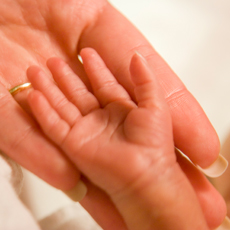 In times like these they say it takes a village, and in a lot of cases it’s important to know that the village exists and should be called upon to help process the deep feelings of anxiety and depression that can result from caring for an infant in the NICU.
In times like these they say it takes a village, and in a lot of cases it’s important to know that the village exists and should be called upon to help process the deep feelings of anxiety and depression that can result from caring for an infant in the NICU.
Each family that ends up with an infant in the CHLA NICU is assigned a social worker, who is highly involved with the family and offers therapeutic support during their NICU hospitalization. Once the patient is discharged home, parents are made aware that there are psychologist who could provide supportive services to them. This help is available to all families regardless of their level of medical insurance.
Below are six things that can help if you or someone you know has a child in the NICU:
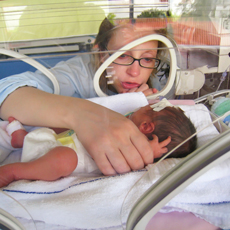 1. Parents who have been there
1. Parents who have been there
One of the things that Sapir believes helps parents the most is the hospital’s ‘parent to parent,’ support program. “Finding parents who have been in their shoes makes a difference,” she says. “It’s voluntary, but we interview parents and those who come back are those we feel are capable of providing the emotional support that the current family needs. Numerous times we’ve had people come back to help families who are afraid of having their kid’s put through a tracheostomy. That way they can see what it’s like three years later.”
2. Self care
Remember on your last plane ride when during the elaboration of the safety features, the host urged you to put your own mask on first before assisting your childrens? A similar ethos works well for parents with infants in the NICU. After all, if a parent does not look after themselves, how can they be expected to care for a newborn? “Most parents want to be at the bedside all the time, understandably so and they can forget about self care.” says Sapir who continues on to clarify that the smallest thing done for ones self can make quite a positive change for the parent. “Even if it’s going outside and walking for five minutes, it makes a huge difference.”
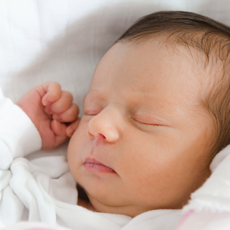 3. Stay in touch with your family and friends
3. Stay in touch with your family and friends
Part of the village that gets parents through this sort of crisis are the family and friends around them. It’s not always easy to call on those close to us for help, but it can definitely increase the parents ability to deal with the crisis on their hands. Sometimes just knowing that your friends and family are available is enough to provide some level of piece of mind. “Having a baby in the NICU is a stressful experience for families,” says Sapir. “It’s important to stay in touch with friends and family outside the NICU.”
4. Participate in medical discussions
Staying present and being an active part of your infants progress also eases the stress of being in the NICU. “Getting to know your medical team is big,” says Sapir. “A medical team will obviously let you know what your medical diagnosis is and what your options are but you can also participate in rounds discussing your child. You can ask questions and give your input like ‘this is what I’ve noticed,’ or ‘this is what I see.’ You have a partnership with the medical team, you have a say.”

5. Work through your feelings
Being in the NICU right after childbirth is not an expected result for many parents and can come as a shock. A shock that many parents struggle with and can lead them to some level of grief and/or PTSD. “People can get depressed and irritable, they sometimes cry a lot and some are quiet. That’s why each family has a social worker they are assigned too, to process their feelings,” Sapir says. “We also have psychologists at the hospital who can also help the family once they have gone home.”
6. Journal
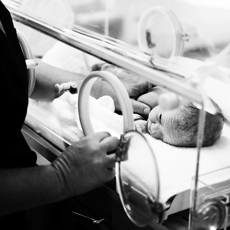 Parents are encouraged to keep a journal while in the NICU with their babies. They are asked to write down questions, mainly to ensure they remember them when the doctors are consulting them in their rounds. But they are also encouraged to journal their thoughts and how they are feeling. These entries can be discussed with the social worker assigned to them to help them deal with some of the negative thoughts that recur in their heads.
Parents are encouraged to keep a journal while in the NICU with their babies. They are asked to write down questions, mainly to ensure they remember them when the doctors are consulting them in their rounds. But they are also encouraged to journal their thoughts and how they are feeling. These entries can be discussed with the social worker assigned to them to help them deal with some of the negative thoughts that recur in their heads.
PTSD and depression in the NICU are not taken lightly at the CHLA and there are a lot of services provided that can help ease the emotional blow. “Peoples depression can lessen,” says Sapir. “They are in a stressful situation, but with the support they have, once they go home, they are in a better state. When you don’t have the support, once you go home it can be more tragic.”
The NICU family support program at the CHLA was one of three programs in the country to be nominated for Hospital Site of the Year Award. For more information and to find help for yourself or a sufferer of PTSD visit the PTSD Foundation of America.

